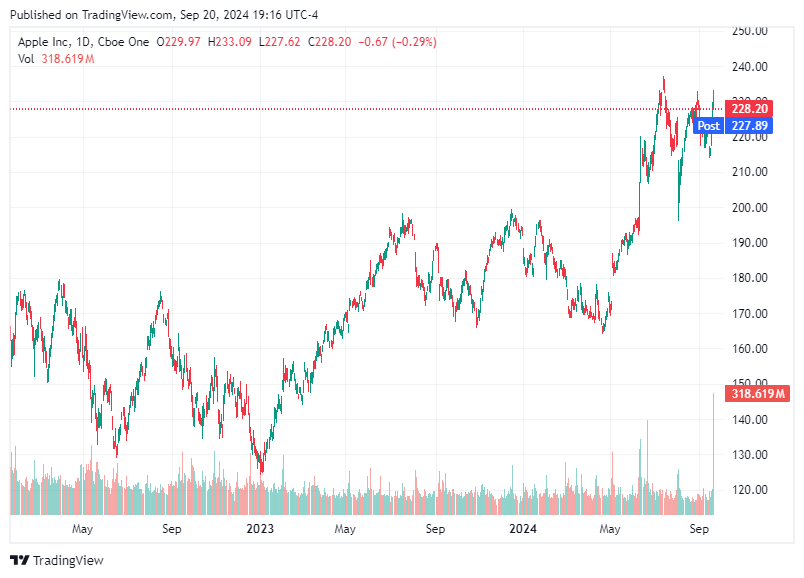EU Begins Guidance For Apple On Digital Compliance
EU Begins Guidance for Apple on Digital Compliance.

Disclaimer: This article is for informational purposes only and does not constitute legal advice.
The regulatory frameworks governing its use and deployment are of paramount importance. The European Union (EU), recognizing the need for equitable and competitive digital markets, has taken a proactive step in this regard. The EU's executive arm has commenced an initiative to guide Apple, one of the world's leading tech giants, in aligning with digital compliance standards as mandated by the Digital Markets Act (DMA).
Understanding the Digital Markets Act and Its Implications
The Digital Markets Act is a cornerstone of the EU's strategy to regulate big tech companies. Its primary aim is to prevent anti-competitive practices by ensuring that large tech platforms, which are often characterized as "gatekeepers," do not misuse their market dominance to stifle competition. For Apple, a company that commands a majority share of the global technology market, the DMA introduces specific obligations that necessitate a reevaluation of its operating systems to promote interoperability.
Interoperability is a central theme of the DMA, emphasizing the need for operating systems like iOS and iPadOS to work seamlessly with other technologies. This requirement is not merely a technical specification; it embodies the EU's vision of a digital ecosystem where consumers have the freedom to choose and switch between devices and services without facing compatibility issues. Such a framework is critical for leveling the playing field, enabling smaller companies and developers to innovate and compete alongside tech giants. The EU's proceedings against Apple involve two distinct "specification proceedings," each with its own focus and objectives. These proceedings are expected to conclude within six months, providing a roadmap for Apple to fulfill its interoperability obligations.
The first proceeding examines how Apple's iOS interacts with various devices, including headphones, smartwatches, and virtual reality headsets. This examination includes aspects such as notifications, device pairing, and connectivity. The EU's interest in these areas stems from consumer feedback and industry observations, highlighting issues like the lack of Bluetooth multipoint capabilities in AirPods and challenges faced by third-party device manufacturers like Garmin.
The second proceeding is concerned with the requests from third-party developers aiming to introduce their products to Apple's ecosystem. The EU seeks to ensure that these developers can integrate their applications and services with iOS and iPadOS without encountering unnecessary barriers. By focusing on these two proceedings, the EU aims to create an environment where innovation can thrive, and consumers can benefit from a diverse range of options and functionalities.
EU's Perspective on Digital Markets
Margrethe Vestager, the outgoing EU competition chief, has been a prominent figure in the EU's efforts to regulate digital markets. Her insights showcase the importance of maintaining fair and open digital markets, where interoperability plays a pivotal role. According to Vestager, the specification proceedings initiated by the EU signifies a major push towards constructive dialogue with Apple, aimed at achieving meaningful compliance with interoperability obligations. Vestager's stance reflects a broader EU agenda that values transparency, competition, and consumer choice in the digital realm.
Apple's response to the EU's initiative reflects a nuanced understanding of the balance between compliance and consumer safety. In a statement to media outlets, Apple emphasized its commitment to providing secure ways for developers to access interoperability features while safeguarding the system protections that ensure consumer safety. Apple argues that undermining these protections could expose users to potential risks, highlighting the company's prioritization of security and privacy in its ecosystem.
While Apple has acknowledged the EU's proceedings, it remains cautious about potential changes that could compromise the integrity of its operating systems. The company's stance reflects a broader industry concern about the implications of regulatory interventions on innovation and consumer trust.
The implications of non-compliance with the DMA are significant. If Apple fails to adhere to the EU's interoperability requirements, it faces the prospect of fines amounting to up to 10 percent of its global annual turnover. Such penalties presents the seriousness with which the EU views compliance and the potential impact of non-compliance on a company's financial health and reputation. However, these fines are not immediate; they would follow a comprehensive non-compliance investigation, providing Apple with an opportunity to address the EU's concerns. The EU's guidance for Apple on digital compliance is a critical development in the ongoing dialogue between regulators and tech companies. These proceedings have far-reaching implications for the tech industry, serving as a reminder of the importance of aligning business practices with regulatory expectations. For consumers, the emphasis on interoperability promises a future where technology is more accessible and versatile, enhancing the overall user experience.
As the proceedings unfold, the tech industry will be closely watching the outcomes, which could set precedents for how interoperability and compliance are approached in other jurisdictions. For Apple, this initiative represents both a challenge and an opportunity to lead by example in fostering a more open and interconnected digital world.
Disclaimer: This article is for informational purposes only and does not constitute legal advice.
We are working endlessly to provide free insights on the stock market every day, and greatly appreciate those who are paid members supporting the development of the Stock Region mobile application. Stock Region offers daily stock and option signals, watchlists, earnings reports, technical and fundamental analysis reports, virtual meetings, learning opportunities, analyst upgrades and downgrades, catalyst reports, in-person events, and access to our private network of investors for paid members as an addition to being an early investor in Stock Region. We recommend all readers to urgently activate their membership before reaching full member capacity (500) to be eligible for the upcoming revenue distribution program. Memberships now available at https://stockregion.net


